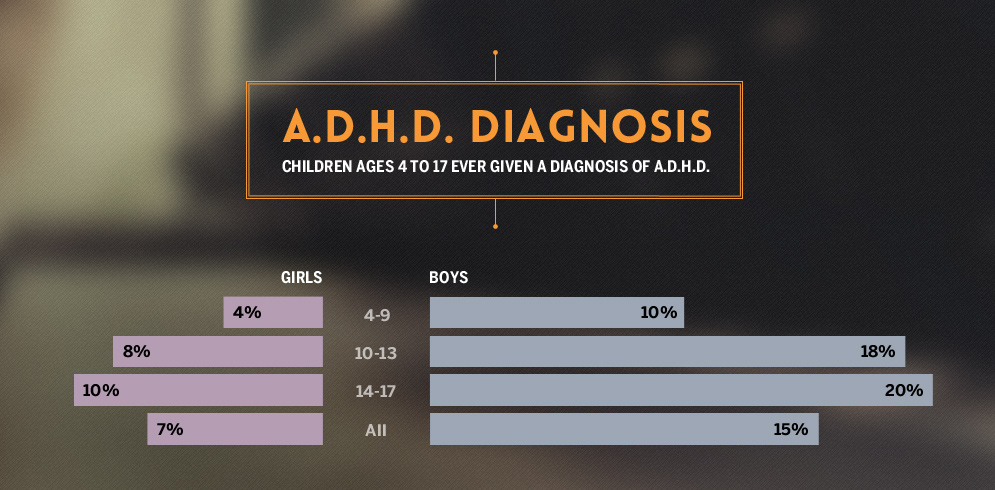The Addiction Puzzle, Part 2: Could ADHD Meds Promote Future Cocaine Use?
CAS prof says correct diagnosis and medication key to avoiding drug habit
“Ritalin is not very different from cocaine, and it’s the most popular ADHD medication. There’s a lot of controversy still surrounding the use of that drug, whether it renders individuals more vulnerable to abusing drugs later on or less vulnerable.”
Know any adolescents who take Ritalin? Chances are high that many people do, given that an estimated 6.4 million children between 4 and 17 in the United States have been diagnosed with attention deficit hyperactivity disorder.
In the United States, more than 60 percent of people diagnosed with attention deficit hyperactivity disorder (ADHD) take a stimulant medication, such as Ritalin, to control their symptoms, while about 20 percent use a nonstimulant, like Strattera. Both drugs help people focus and adjust to a changing environment, and to succeed in school or work. That’s a source of comfort for those living with ADHD and their families.
But what may be discomforting is the clinical research suggesting that one in five people diagnosed with ADHD as adolescents develop cocaine habits as adults. Most researchers don’t think ADHD medications are the culprit, but Kathleen Kantak has a different idea, and it’s based on at least five years of research made possible through funding of $2.25 million from the National Institute on Drug Abuse. The College of Arts & Sciences professor of psychology has examined the link between ADHD and cocaine use through a series of experiments in her animal laboratory, and her work suggests that the type of ADHD medication prescribed and the accuracy of a doctor’s diagnosis may contribute to future cocaine use.
“Ritalin is not very different from cocaine, and it’s the most popular ADHD medication,” Kantak says. “There’s a lot of controversy still surrounding the use of that drug, whether it renders individuals more vulnerable to abusing drugs later on or less vulnerable.”
Kantak’s target population has been adolescents. Clinical studies published in Pediatrics and the American Journal of Psychiatry show that teenagers diagnosed with ADHD who start taking Ritalin, but stop before reaching adulthood, could be twice as likely to develop a cocaine habit later on, this at a time when the number of those 4- to 17-year-olds has increased 16 percent since 2007 and jumped 41 percent over the past decade, according to the Centers for Disease Control and Prevention. Kantak says there is no evidence that younger children and adults who take Ritalin are at increased risk, and the link suggested by her research affects only adolescents. She says she finds it particularly alarming that nearly one in five high school–age boys has been given the diagnosis, a figure that is, curiously, twice that of girls in the same age group.

Source of data: the Centers for Disease Control and Prevention. View full size
“Adolescence is the period of the most rapid development of brain structure and function, particularly in the prefrontal cortex, which is the site of dysfunction in ADHD,” she says. During the teenage years, the brain’s wiring is going through a natural spurt of proliferation and pruning. “You can give drugs…during adulthood or during the juvenile stage and it may not have much of a long-lasting impact,” she explains. “But you take a brain that is very rapidly transitioning, you add a pharmacological agent on top of that, and you increase the risk of having some long-term consequences.”
Kantak’s experiments used three types of rats to test her hypothesis that certain ADHD medications taken during adolescence may contribute to future cocaine use. The first type, the spontaneously hypertensive rat (SHR), shows some of the same behavioral characteristics as people with ADHD, such as memory and learning deficiencies as well as an inability to easily shift from one task to another—a process known as set-shifting. Kantak compared the behavior of this type to that of two controls, the inbred Wistar-Kyoto (WKY) and the outbred Wistar—both of which are commonly used in animal experiments and do not display ADHD-like characteristics. In addition to observing their behavior, she tested whether these types of rats reacted differently to drug therapies targeting ADHD.
Graduate students and other assistants working in Kantak’s lab took each rat group through paces designed to measure their set-shifting ability. They then gave the rats Ritalin, Strattera, or no drug, and measured set-shifting again to see if the drug was working to counter ADHD symptoms in the SHR rats. All rats were taken off medications at the end of their adolescence.

Kantak’s team then tested their adult rats’ vulnerability to cocaine use. Each animal was implanted with a catheter and placed in a chamber equipped with a lever that when pressed, allowed them to take cocaine at will. The researchers first looked at how quickly the animals acquired a coke habit, defined as taking at least 20 infusions within a two-hour period for two consecutive days. They found that the SHR rats—whether or not they received Ritalin as adolescents—acquired a habit faster than the WKY or Wistar types. They also learned that SHR rats that received Ritalin as adolescents found cocaine more rewarding as adults than SHR rats that hadn’t received Ritalin as adolescents. The SHR Ritalin rats eagerly pursued their next hit, and they reacted to cues associated with cocaine delivery more than the other strains. Neither the inbred nor the outbred control rats, even those that had received Ritalin as adolescents, picked up a habit.
The researchers concluded that Ritalin pushes only those rats with ADHD-like characteristics toward greater cocaine use, and it does so only if the Ritalin was taken during adolescence.
When the SHR rats received the nonstimulant Strattera as adolescents, they were not quicker to acquire a cocaine habit. The same was true in the Wistar rats. But Strattera had the opposite effect on WKY rats, which do not exhibit ADHD-like characteristics. As adults, these rats were quicker to acquire an addiction to cocaine than those that never took the drug.
The results of Kantak’s research could present a dual cautionary tale for adolescents diagnosed with ADHD. “If they’re an adolescent getting a stimulant medication, and they’re properly diagnosed, the medication may put them at increased risk” for cocaine use as an adult, Kantak says. “If they’re misdiagnosed, and get Strattera, this may also be putting them at greater risk…of acquiring an addiction to cocaine.”
Kantak’s bottom line? She thinks adolescents properly diagnosed with ADHD should take either Strattera or another nonstimulant medication, while those whose diagnosis is doubtful would be wise to stay away from Strattera. She also believes pediatricians need to be especially careful when arriving at diagnoses. At the same time, she cautions parents who may see certain symptoms and “convince themselves that their child has ADHD, while what they really want is to give them a better competitive edge.” That edge could have dire circumstances down the line.
Kantak is currently examining what effect continued use of ADHD medication, through adolescence and into adulthood, has on acquiring a cocaine habit. She is comparing Ritalin with amphetamine—another stimulant used frequently to treat ADHD in the United States and Europe—to test each drug’s effectiveness in treating symptoms and tendency to promote future cocaine use. And she also hopes to study nicotine’s interaction with ADHD medications, because, she says, “up to half of teens with ADHD smoke.” She thinks this may put them at higher risk for abusing other substances down the line.
The Addiction Puzzle
- An Overdose Lifeline
- Could ADHD Meds Promote Future Cocaine Use?
- The Search for the Alcohol Trigger
- Why Alcoholics’ Gender Matters
- Bringing Scientific Rigor to Addiction Research
This Series
Also in
The Addiction Puzzle
-
November 18, 2013
The Addiction Puzzle, Part 1: An Overdose Lifeline
-
November 21, 2013
The Addiction Puzzle, Part 4: Why Alcoholics’ Gender Matters
-
November 22, 2013
The Addiction Puzzle, Part 5: Bringing Scientific Rigor to Addiction Research

Comments & Discussion
Boston University moderates comments to facilitate an informed, substantive, civil conversation. Abusive, profane, self-promotional, misleading, incoherent or off-topic comments will be rejected. Moderators are staffed during regular business hours (EST) and can only accept comments written in English. Statistics or facts must include a citation or a link to the citation.